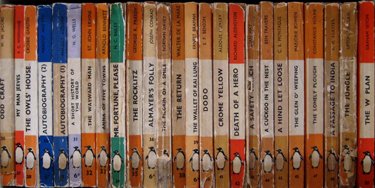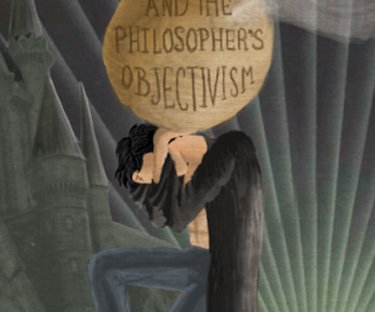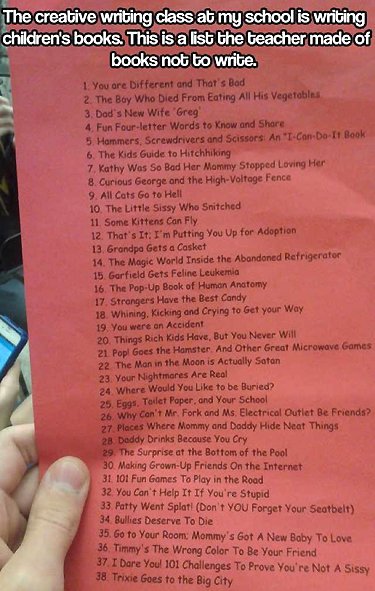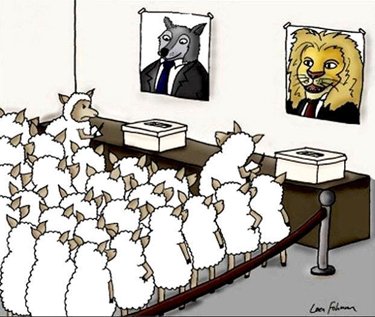Archive for May, 2014
31 May 2014


The dining hall where I used to eat dinner in New Haven.
L.V. Anderson (who did not go to school in New Haven. I looked it up.) finds the way in which alumni of certain Ivy League colleges (and, who knew? apparently even Stanford) commonly respond to inquiries about where they attended school with modest evasion decidedly annoying.
Until recently, I was of the naïve belief that no Harvard graduates actually responded to inquiries about their alma mater with “I went to college in Boston,†nor Yalies with “New Haven,†Princetonians with “New Jersey,†or Stanford alumni with “the Bay area.†I assumed this conversational maneuver was such an embarrassing cliché that it had become obsolete, the province of fictional characters who were either historical (like The Great Gatsby’s Nick Carraway, who informs readers, “I graduated from New Haven in 1915â€) or cartooonish (like 30 Rock’s Toofer, who bellows, “I went to college in Boston. Well, not in Boston, but nearby. No, not Tuftsâ€).*
Then I solicited the opinions of my Slate colleagues, many of whom have degrees from universities that rank highly on U.S. News and World Report’s annual list. I discovered that many of them had personally heard this wink of a noncommittal response, and, more alarmingly, some of them had uttered some version of it themselves. (“I’m not proud of it, but I have once or twice said Connecticut instead of Yale,†admitted one Eli.)
Having thus learned that this is still a thing, I must, at this moment when many undergraduates are headed home for the summer, urge all Yale, Princeton, and Harvard students and alumni—and anyone else tempted to use a geographical euphemism to describe their august alma mater—to please stop doing this. Cease and desist. Cut it out. I’m sure you are a kind and smart person, but this verbal habit makes you look like a patronizing, self-serious jerk. …
lite alumni’s main justification for this habit is that some people act weird and make uncomfortable or hostile comments when they learn you went to Harvard, Yale, or Princeton. Indeed, Harvardians frequently refer to telling people you went to Harvard as “dropping the H-bomb,†which is perhaps the most cringeworthily hyperbolic expression in the English language. The unwieldy conversational power of the H-bomb is a recurring topic of analysis in the Harvard Crimson. See, for instance, this 2002 piece by MSNBC reporter Irin Carmon with the excellent subtitle “Does it help or hinder the mack?†(The gender politics of the H-bomb are complicated.) Princetonians, similarly, talk about the “P-bomb,†a term that implies that the two syllables in “Princeton†can derail small talk and obliterate nascent social connections in one fell swoop.
Certainly, some small number of people—insecure people who perhaps have not yet learned that Ivy League schools confer degrees on plenty of idiots every year—may react inelegantly upon hearing that you went to Harvard, Yale, or Princeton. But it is not your job to anticipate and preemptively manage another person’s emotional response to your biography. If you tell people you went to Harvard and they respond by freaking out, that reflects poorly on them.
If, on the other hand, you refuse to tell someone you went to Harvard, that reflects poorly on you—it implies that, on some level, you buy into the overblown mythos of Harvard and the presumption of Ivy League superiority. To fear the effects of the word “Harvard†is to take Harvard way too seriously. Once you understand that Harvard is just a college, and that getting into Harvard probably had more to do with your socioeconomic background and the luck of the draw than with your merits vis-à -vis people who didn’t get into (or, more likely, just didn’t apply to) Harvard, the cagey “college in Boston†response starts to sound very, very silly.
Or look at it this way: Saying you “went to college in Boston†or “went to college in New Haven†functions as an elitist dog whistle. There are people who pick up on the hint, people who, like you perhaps, spend a lot of time around snotty people who went to prestigious schools. But if your interlocutor understands the dog whistle, he will probably be offended that you have judged him incapable of gracefully handling the news about where you went to school. And if your interlocutor doesn’t understand the dog whistle, he will simply wonder why you are being so evasive and weird—and then, if he does eventually find out you went to Yale, he will be offended that you have judged him incapable of gracefully handling that fact. Either way, you’ll look like a shmuck.
Actually, people do this all the time. If your interlocutor did not go to Yale (or some near equivalent in New Jersey or Massachusetts), one simply naturally feels that he may find it pretentious, or even intimidating, for you to respond with Yale.
If he did himself go to Yale (or some close simulacrum), he will understand perfectly well what you mean, when you say “New Haven” or “Davenport College.” If he didn’t, he will presumably be contentedly put off and assume that you attended New Haven University or some sort of Calhoun, Saybrook, D-port, or Jonathan Edwards sort of college he’s never heard of.
No offense intended. L.V. Anderson’s problem is simply the result of hanging around Slate and becoming too clever by half. She has learned the code words, but does not understand the perspective of those who use them.
31 May 2014

Taking a break in Daytona, Florida. slideshow
31 May 2014


Monsters Domesticated‘s second unique Cthulhu Mythos chess set, described thusly:
This is a complete set of thirty-two hand-sculpted chess pieces, in a Lovecraftian vein. My first set made some (lucky?) fellow a very peculiar xmas present; this one is more madly elaborate still, and will strain the sanity of the stoutest soul.
A wholly hand-made labor of lunatic love, these pieces feature indescribable forces of madness and the grotesque. This might be the only way you can manipulate these alien deities without your own destruction being inevitable. If play with these pieces does, in fact, cost you your very reason, however, Monsters Domesticated can accept no responsibility.
We consider the black pieces to be the Cthulhoid forces, with dread Cthulhu itself as king, and menacing Dagon as swift and malevolent queen, and the mouldering green pieces to be led by Yog-Sothoth as king, in all its gibbering madness, and primordial Ubbo-Sathla as queen. Of course, you’re the cultist, so you’re entitled to assign whatever mythos iconography you like. The interpretations, fortunately for all life in this dimension, are loose.
The bishops of each side are mad alien priests, the knights grotesque mounts with vile curved spines, the rooks writhe horribly within their blasted towers. The black pawns are sinister, writhing spawn of dread Cthulhu, and the green pawns mocking little tentacular skulls.
Each piece was sculpted by hand and is absolutely unique. There is no mold, and this set will never be reproduced. (Although holders of a copy of the true Necronomicon might be able to convince these atrocities to reproduce themselves.)
This chess set is the perfect abomination for the Dark Strategist in your life. Get it before it lurches into sentience and destroys its creator.
Hat tip to James Harberson.
30 May 2014

Look closer. It’s a female model in full body paint sitting on a stump with her right leg drawn up and her left leg straight.
Daily Mail
29 May 2014


Ed Laskey, at American Thinker, compares Barack Obama to Chance the Gardener in the 1979 film “Being There.” The gardener’s simple-minded utterances are mistaken for gnomic profundity when he blunders into contact with the rich and powerful, and the gardener gets promoted to the presidency. How prophetic art can sometimes be!
He is a notorious loner who does not like people, according to a former aide; he has a chronic work ethic problem; he is protected by bad news and problems by his small entourage of ego-protectors; he does the barest of minimum in terms of presidential duties — that have been dumbed down for him to a check-the-box style of presidential leadership; he has a lot of fun enjoying his luxe lifestyle; and, as previously noted, he does watch a lot of TV. …
Television-watching induces passivity – ask any parent of a toddler. …
Washington Post columnist Ruth Marcus commented on Obama’s presidency back in 2011:
For a man who won office talking about change we can believe in, Barack Obama can be a strangely passive president…
…there are a startling number of occasions in which the president has been missing in action — unwilling, reluctant or late to weigh in on the issue of the moment. He is, too often, more reactive than inspirational, more cautious than forceful. The dots connect to form an unsettling portrait of a ‘Where’s Waldo?’ presidency.”
Where is Waldo? He is probably in front of the Boob Tube. And that would also answer the increasing number of critics, such as National Review’s Jim Geraghty who ask (rhetorically?) “So…just what is it that you do here, Mr. President�
The scandals and self-inflicted man-made disasters (among them a wasted trillion-dollar stimulus, the wreckage of Obamacare) all reinforce the image that he may be a skilled speechmaker-if one likes messages the length of Tweets-but a lousy manager and terrible leader. Also, President Passive just doesn’t seem to care when people suffer.
29 May 2014


Linda Grant recently reduced the size of her library. She now feels guilty, but she also knows how to milk another publication out of all this.
It is more than 50 years since I began to build my library from its earliest foundations in the elementary sentence construction of Enid Blyton. Now, at least half of the thousands of books I have bought are gone. It is one of the worst things I have ever done. I hate myself. But not as much as I have come to hate the books. Hate books! A thought-crime at the very least. Only a philistine, a religious zealot, a Nazi would hate books.
It is not the words I hate, not literature, but their physical manifestation as old, musty, dusty, yellowing, cracked objects, heavy to lug around. When I open the pages swarms of black ants dance on the paper. No one told me. No one said: “In the future you will squint and screw up your face and try to decipher these words you once read so easily.” When I look at my books I feel like Alice in the closing pages of Alice in Wonderland, when the cards all rise up and overwhelm her.
When the estate agent came to look at my flat he winced when he saw all those books. What did he see? Clutter. Estate agents do not think that books furnish a room; books make rooms look messy. You would not display the contents of your knicker and sock drawer or your bathroom cabinet with its face creams and cough remedies, so why put off potential buyers with your taste in literature?
In order to market my flat, the books had to be pruned back. At the very least, they would not be permitted to exceed the number of shelves available to house them. So the murder began.
The methodology I used for my cull was very high-minded: I would preserve those books of literary merit, the books I had not yet read but wanted to and the books given as gifts with an inscription on the flyleaf. Judging literary merit at the top of library steps is a beautiful and contemplative activity. I see Catherine Deneuve, half‑lit with the illumination from a Parisian window on a Rive Gauche boulevard below cloudy, pearly autumnal skies, a few streets from Shakespeare & Co. She picks a book out from the shelf, examines the spine. Ah, Mathieu! The much older lover, a grizzled intellectual with whom she spent a summer in Cadaqués when she was 20. Fade … dissolve to Charlotte Gainsbourg in 1967 in the kitchen cutting tomatoes, while out on the terrace Daniel Auteuil is typing the masterpiece that will win the Prix Goncourt and later be filmed by Truffaut.
I sneezed. The shelves were filthy. I wobbled, looked down, got vertigo. How do we assess André Gide’s reputation? By we I don’t mean the French Academy. Does anyone still read him? If no one still reads him what does that tell me about literary merit? I went down the steps to the internet and looked him up. He won the Nobel prize for literature; he died in the year of my birth. Strait Is the Gate was one of the Penguins I bought in my early teens. I have absolutely no recollection of its subject matter. It gets thrown to the floor and joins the other splayed volumes of rejects.
Read the whole thing.
My wife and I have a library of something on the order of 30,000 books. In our prime, we lived in a twenty-odd room 1712 Colonial house which had been enlarged a few generations back into an inn. As old age approached, we found ourselves obliged to uproot ourselves and move all over the country for business reasons. Some books went into storage.
We were finally compelled by the recession to retrench, and are living in retirement at our rural vacation home/hunting camp. Now we have two storage facilities. The nearby one is absolutely immense. It resembles the government facility where the Ark of the Covenant wound up.
Books packed in boxes stand piled high, and there are endless rows of metal library bookcases. The task of unpacking, sorting, and shelving is so intimidating that I go there, poke around, open up a few boxes, and decide to postpone further progress until next time.
The thing is: ironically enough, you can get just about any book published before the 1920s these days in electronic form for free. My entire life has been dominated by a constant effort to acquire and house every book I might need to satisfy an absurdly diverse range of interests and curiosities.
During my boyhood, books were difficult to find, rare, and valuable. So I grew up a book hoarder and idolater. Today, the wisdom of the ages and the complete (out-of-copyright) contents of essentially every research library in the world are a mouse-click away.
Hat tip to Frank Dobbs.
29 May 2014

Hat tip to Jose Guardia.
28 May 2014


Mallory Ortberg imagines how the saga might have read if Ayn Rand had written Harry Potter.
“Give me your wand, boy,†Voldemort hissed.
“I cannot do that. This wand represents my wealth, which is itself a tangible result of my achievements. Wealth is the product of man’s capacity to think,†Harry said bravely.
Voldemort gasped.
“There is a level of cowardice lower than that of the conformist: the fashionable non-conformist.â€
Voldemort began to melt. Harry lit a cigarette, because he was the master of fire.
“The smallest minority on earth is the individual. Those who deny individual rights cannot claim to be defenders of minorities. The minimum wage is a tax on the successful. The market will naturally dictate the minimum wage without the government stepping in to determine arbitrary limits.â€
Voldemort howled.
“I’m going to sell copies of my wand at an enormous markup,†Harry said, “and you can buy one like everyone else.â€
Voldemort had been defeated.
“He hated us for our freedom,†Ron said.
“No, Ron,†Harry said. “He hated us for our free markets.â€
Hermione ached with desire for the both of them to master her, but nobody paid her any attention. They had empires to build.
Read the whole thing.
/div>

Feeds
|














